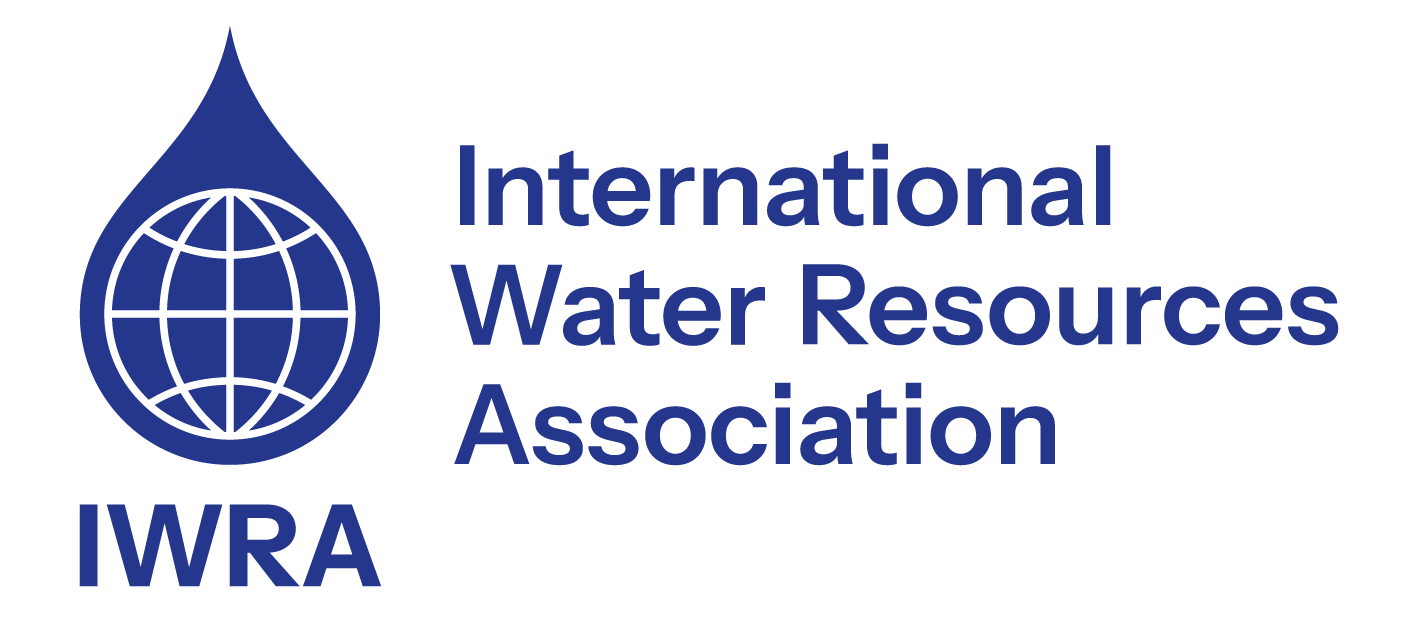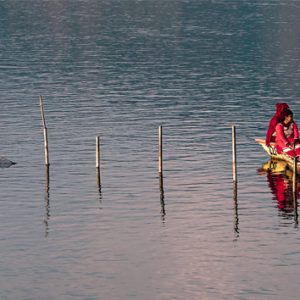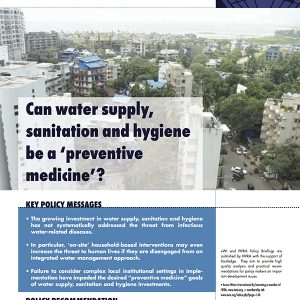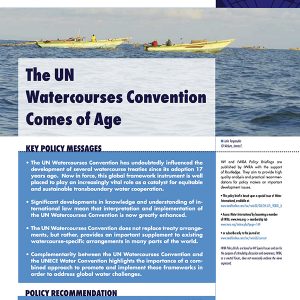Governance insights for groundwater management challenges
27 September

This webinar introduced the GWSI Series 3 publication, on The Role of Sound Groundwater Resources Management and Governance to Achieve Water Security. Authors of the Series 3 publication joined IWRA to discuss their governance insights for groundwater management challenges. Mary Trudeau, IWRA’s project officer, moderated the discussion.
Aurelian Dumont from UNESCO started the webinar off by emphasising the positive collaboration between UNESCO, IWRA and i-WSSM to prepare the GWSI Paper Series, which is co-published by UNESCO and i-WSSM. He explained that each year a theme is selected and 15 experts are invited to contribute, ensuring also that gender and geographical balance is accounted for. Dumont emphasised the importance of groundwater being the theme of the third issue. While groundwater accounts for 99% of all liquid freshwater on Earth, it still remains vulnerable, overexploited and left polluted. Dumont highlighted the GWSI Series 3 paper as relevant also to 2022, as a special year for groundwater, where UN-Water declared Groundwater: Making the Invisible Visible as the theme for the World Water Day 2022, a year in which the UN-Water Summit on Groundwater will take place (December 2022).
Seo Hyung Choi, a programme specialist from UNESCO’s i-WSSM (International Centre for Water Security and Sustainable Management), explained that the mission of i-WSSM is to support water security strategies for sustainable development against climate change. As i-WSSM is a co-publisher of the GWSI, Choi described previous GWSI issues, and shared information about the subsequent Series 4 – Water Security and Cities – Integrated Urban Water Management and Series 5 – Making Water Decisions for Climate Change Adaptation, which will be released in 2023.
Amy Hardberger presented two groundwater case studies, one on Kenya in Sub-Saharan Africa, and the second on Jordan in the MENA region. Hardberger detailed that Kenya faces many challenges related to water governance, a lack of aquifer understanding, and a lack of aquifer data. Jordan faces jurisdictional water challenges and an over abstraction of groundwater. In both of these regional cases, corruption and conflict has exacerbated an already sensitive groundwater resource, resulting in a need for stronger groundwater governance. Hardberger emphasised that clear goals regarding groundwater should be set and committed to at the national level. Furthermore, she noted that generalised outcomes can be specified at the national policy level, however detailed regulations and management are needed to reflect local physical and economic circumstances.
Frida Cital and Eliana Rodríguez Burgueño discussed the transboundary aquifer challenges that the Mexicali Valley Aquifer (MVA) faces. This aquifer supplies water to five municipalities in Baja California and to two agricultural valleys. The MVA faces groundwater overexploitation and the presence of saline solids and brackish water. Cital and Rodríguez Burgueño detailed the governance challenges that arise from this transboundary aquifer including the strong need to work with the principal Mexican water agency (CONAGUA) to help support the monitoring of groundwater extraction from the aquifer. The authors recommended there to be a new integrated plan with specific indicators and metrics for monitoring the transboundary aquifer.
The last presentation given during the webinar was Julie Trottier, who discussed how the term water security has been defined differently across disciplines, with each discipline favouring different scales. Trottier used the case of the 1995 Oslo Agreement between Palestine and Israel, where a water stock paradigm allotted specific amounts of water to Israel and Palestine. This method, Trottier argues, did not consider how water could be reused within the system, or how it was used based on a flow paradigm (looking at how water is used as it flows downstream). Trottier promotes a new definition for water security that incorporates a flow paradigm. Trottier defines water security as ‘a situation where water governance over all scalar levels ensures an interaction with the flow of water that is consensually considered across all social groups, including vulnerable minorities, while also ensuring the long term sustainability of the environment.’
Presentations and Speakers
- Overview of the GWSI series, Seo Hyung Choi, i-WSSM UNESCO, South Korea
- Overview of UNESCO’s role in GWSI, Aurelian, Dumont, UNESCO, France
- Groundwater Governance for Conflict-Affected Countries, Amy Hardberger, Texas Tech School of Law, USA
- A Governance Panorama of an Aquifer in a Semi-Arid Region, Mexico, Frida Cital and Eliana Rodríguez Burgueño, Instituto de Ingeniería, Universidad Autónoma de Baja California, Mexico
- Switching from Stock to Flow to Achieve Water Security: the Case of Palestine, Julie Trottier, Research Center for the Organization and Dissemination of Geographic Information (PRODIG), France
Moderator : Mary Trudeau, IWRA Projects Officer
IWRA Webinars constitute an additional resource designed to help our members, academics, dedicated practitioners, and policy professionals further explore these and other timely themes engaging in fruitful discussions, also aligned with the international water agenda and in close collaboration with key partners.




